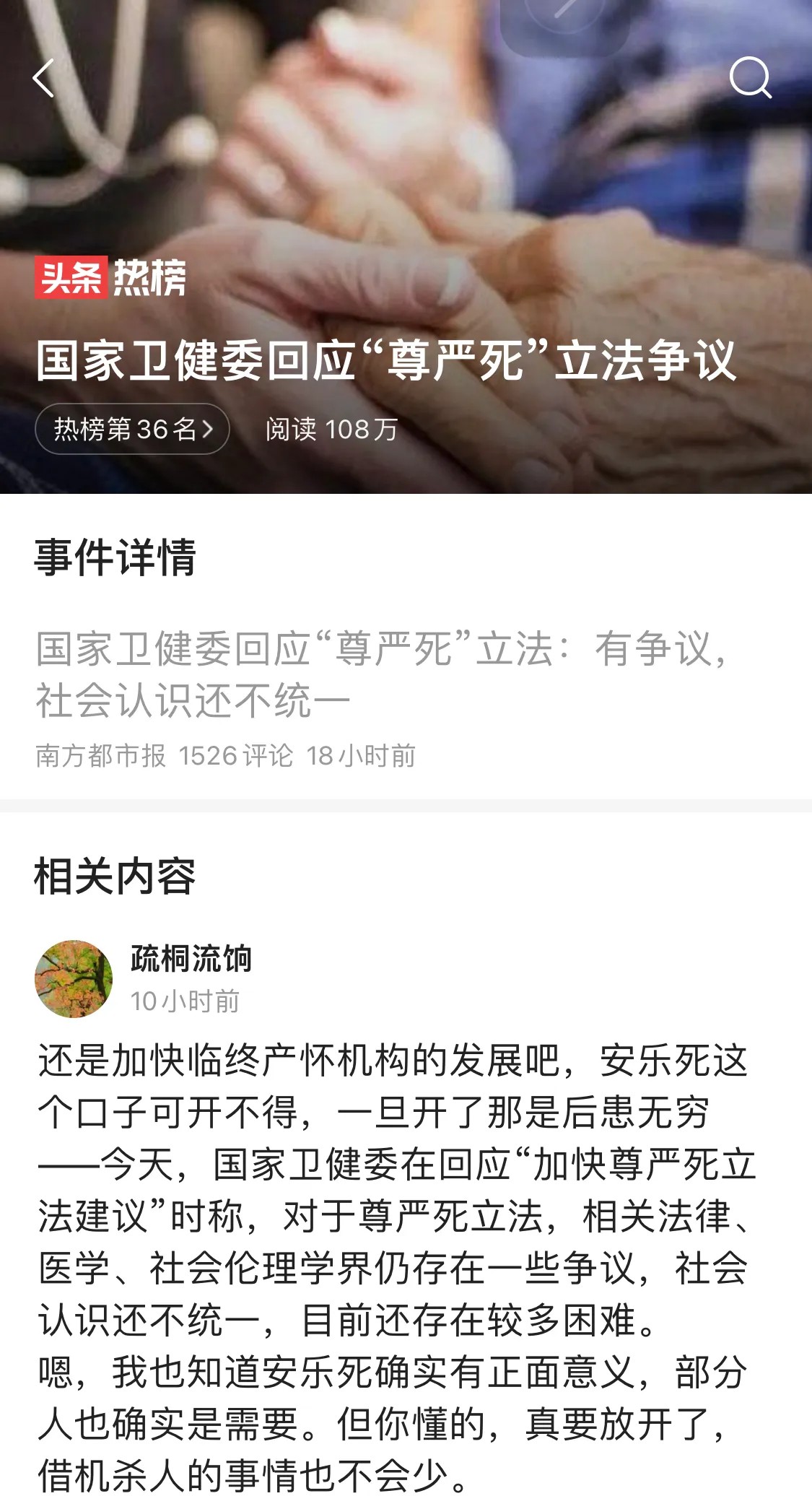#国家卫健委回应 "Death with Dignity" Legislative Controversy # Headlines Euthanasia, Death with Dignity, and Hospice care are three similar concepts, one more accurate than one, and one more easily accepted by our culture than the other. Whether it's euthanasia or death with dignity, the wording is not very good. The opinion of the National Health Commission can be said to be quite stable. However, I do not agree with the following statements of netizens: letting go of death with dignity will give more opportunities for crime and malice.
Euthanasia and death with dignity are reminiscent of voluntary renunciation of life. It is better to die than to live. Life is the foundation of everything. Our traditional culture attaches great importance to life, attaches great importance to the present body, and pays relatively little attention to the world after the body. Therefore, any wording involving the voluntary abandonment of life will contradict our underlying cultural psychology, and only some rare exceptions will be allowed, such as killing to become a benevolent person and sacrificing life for righteousness.
The term "death with dignity" is more appropriate than "euthanasia". Death with dignity is also the pursuit of dignity when dying, and dignity is a precious thing. Euthanasia, on the other hand, is limited to the state at the time of death, which suffers less but lacks active pursuit compared to death with dignity. Moreover, semantic euthanasia can also make people have bad associations. Mencius said that he was born of sorrow and died of happiness. This statement has a great impact on traditional culture. Under the influence of Mencius's sayings, euthanasia even has a negative significance.
In comparison, palliative care is much more robust. Patients are at peace, doctors and families treat them, they are dignified, and they enjoy comfort at the time of death. That is to say, the essence of euthanasia and dignified death can be covered, but the word "death" has been avoided. At the end of the disease, neither doctors nor family members should undergo traumatic treatment, nor should they be treated for the purpose of saving lives, provided that the patient's consent is obtained in advance. At this time, the preservation of life and the welfare of the patient are negligible, but at the same time, it greatly increases the pain of the patient.
Some netizens expressed concern about dignified death, believing that some lawbreakers would use dignified death to carry out illegal and criminal activities. This concern is a good intention, but it is not necessarily a serious problem. Because, whether it is euthanasia, death with dignity or hospice care, it is an extremely prudent thing. We should not only listen to the patient, nor can we listen to the voice of the patient's family, the voice of medical experts and the review of the medical ethics team are important. Moreover, restrictions should also be placed on where euthanasia, death with dignity or hospice care can occur. These processes should be carried out in medical institutions, and the corresponding medical institutions should have nationally recognized qualifications.
There are many separations in life. Hospice care is like giving someone off from a platform. The train whistle has been sounded, and pulling the hand of the passenger through the window, although it expresses reluctance, it will bring greater risks.
